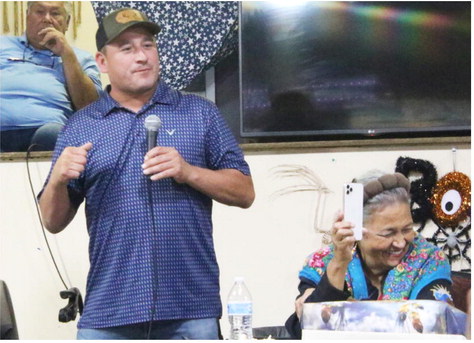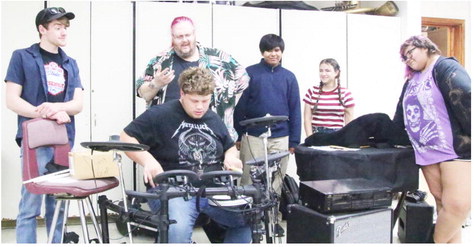Vaccination Clinics To Be Offered In Area
The Roosevelt County Health Department will be offering vaccines at its traveling clinics and the Roosevelt County Health Department.
A clinic is scheduled for Tuesday, Oct. 14, from 9 to 11 a.m. and 1 to 4 p.m. at the health department.
Vaccination clinics will be held for the following respiratory illnesses:
COVID About: Disease caused by Sars-Cov-2 virus that can be very contagious and spread quickly. May attack more than lungs and respiratory system. Some people will develop “Long Covid” which includes a wide range of chronic symptoms that may improve, worsen, or be ongoing.
Signs and symptoms:
Signs and symptoms will appear 2-14 days after exposure including:
• Fever
• Chills
• Cough
• Shortness of breath or difficulty breathing
• Sore throat
• Congestion or runny nose
• New loss of taste or smell
• Fatigue
• Muscle or body aches
• Headache
• Nausea or vomiting
• Diarrhea Testing: Rapid at-home tests or testing at primary care provider via nasal swab Treatment: Over the counter medications such as cough syrup, Tylenol, or Advil; antiviral medications can be obtained from primary care provider shortly after symptoms start. Influenza About: Also called flu, is a viral infection of the nose, throat, and lungs. Influenza A and B are most common. “Flu season occurs October through March each year. Flu vaccine can be given yearly.
Signs and symptoms:
• Fever or feeling “feverish” *Not everyone with flu will have a fever
• Chills
• Cough
• Sore throat
• Runny or stuffy nose
• Muscle or body aches
• Headache
• Fatigue
• Vomiting and diarrhea is more common in children Testing: See primary care provider for nasal swab
Treatment: Antiviral medication within two days of getting sick, OTC medications to treat symptoms such as Tylenol, Advil, Dayquil, etc. RSV About: Respiratory syncytial virus, or RSV, causes cold symptoms and can be serious for infants and the elderly. Commonly occurs from October to May each year. RSV vaccine can be given during pregnancy from 32-36 weeks. Infants may receive RSV antibodies up to 24 months. Those 50+ may receive RSV if they are at risk for severe RSV complications.
Signs and symptoms:
• Runny nose
• Congestion
• Dry cough
• Sneezing
• Fever
• Wheezing
• Shortness of breath
Testing: See primary care provider for nasal swab
Treatment: OTC medication for symptoms management Pneumococcal About: Infection caused by pneumococcus bacteria that can affect many different body systems — lungs, sinuses and bloodstream are common.
Signs and Symptoms:
Symptoms depend on the part of the body that’s infected: Pneumonia (lungs)
• Chest pain
• Cough
• Fever and chills
• Rapid breathing or difficulty breathing
Meningitis (nervous system)
• Confusion
• Fever
• Headache
• Sensitivity to light
• Stiff neck Bloodstream
• Fever
• Chills
• Low alertness Ear
• Ear pain
• Fever
• Lethargy Sinuses
• Cough
• Facial pain
• Headache
• Post-nasal drip
• Runny or stuffy nose
• Sore throat
Testing: See primary care provider for possible blood test, urine test, sputum sample or spinal tap (testing will be dependent on location of infection) Treatment: OTC medications and antibiotics, if necessary Prevention: Vaccination, handwashing, avoiding contact with those that are sick, cleaning frequently touched surfaces, wearing a mask, avoiding touching eyes, nose or mouth.

